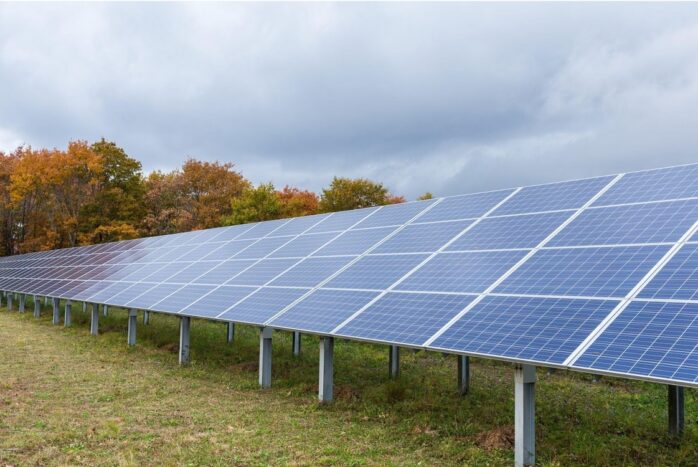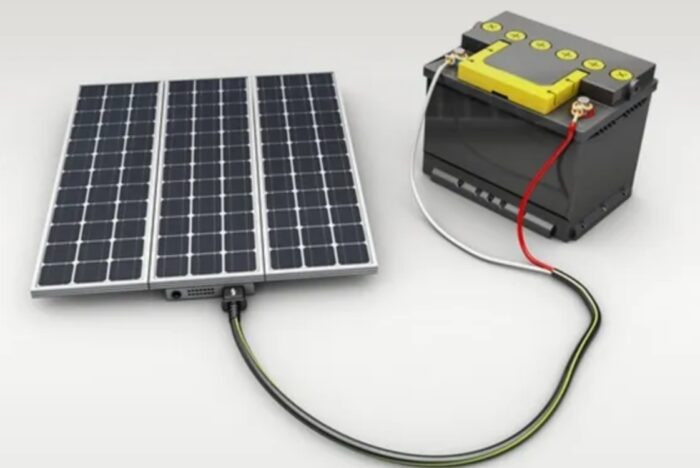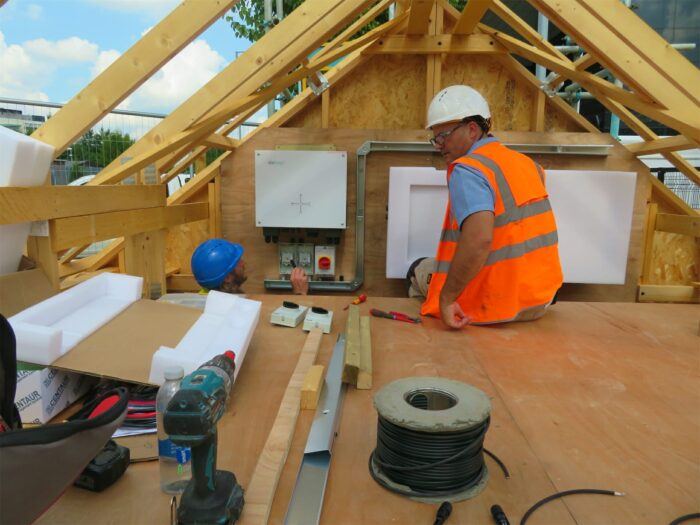
Solar power has emerged as a prominent contender in the fight for sustainability as the world shifts its focus to renewable energy sources. However, in the interest of acquiring solar energy, one critical component is frequently overlooked: solar batteries. These hidden yet powerful devices are critical to increasing the efficiency and dependability of power systems, providing a glimpse into the future of sustainable energy storage. Imagine having the ability to store excess sunshine during the day and use it at night or on cloudy days.
This is where solar batteries come in, transforming how we access and use solar energy. Solar Panels York is here to help you delve into the intriguing world of batteries and explore their critical role in maximising the potential of your power system. Check them now!

Solar Batteries:
They are an important component of a solar power system because they allow excess energy generated during peak sunlight hours to be stored for later use. These batteries allow homeowners and businesses to get the most out of their solar panels by offering a stable source of stored electricity for usage during periods of low sunlight or at night. Battery technology developments have enabled homeowners and companies to become less reliant on the grid, resulting in lower energy costs and more energy independence.
What are the advantages?
A key benefit of solar batteries is their ability to offer backup power during grid disruptions, ensuring continuous power supply even when the local grid is down. This is especially useful in locations prone to harsh weather occurrences or with weak grid infrastructure. The incorporation of smart battery management systems enables users to monitor and optimise their energy consumption, hence improving overall efficiency and performance. As more individuals discover the economic benefits and resilience afforded by batteries, their use in the residential and commercial sectors around the world is increasing.
Solar batteries can store surplus energy created during bright days for later use, such as at night or during gloomy weather. This offers a continuous and dependable energy source, decreasing grid reliance and enhancing energy independence.
It can also help homeowners save money by storing excess energy and using it when electricity rates are higher or during peak demand periods. As battery technology advances, these batteries become more economical and efficient, making them an appealing alternative for both home and commercial applications.
In addition to supplying backup power during outages, they help to reduce carbon emissions by enabling a more sustainable and eco-friendly energy consumption pattern.

Different types of solar batteries
There are various varieties of solar batteries to consider, each with its own set of features and benefits.
- Lead-acid batteries are the most prevalent and cost-effective alternative for residential solar power systems. They do, however, necessitate regular care and have a shorter lifespan than other sorts.
- Lithium-ion batteries provide better energy density and faster charging capabilities. As a result, they are well-suited for off-grid applications and commercial installations where dependability is essential.
- Flow batteries, which employ liquid electrolytes to store energy, are another growing possibility. Flow batteries, while still relatively new to the market, show promise in terms of scalability and long-term performance.
Understanding the various types of batteries is critical for creating an effective and dependable solar power system that is adapted to specific needs and financial restrictions. Consumers can make informed selections that maximise the value of their investment in renewable energy technology by assessing aspects such as capacity, longevity, maintenance requirements, and cost-effectiveness of each battery type.
How to determine the right battery for you
The storage capacity of the battery is a significant consideration because it determines how much energy it can keep and give to your home. Furthermore, the depth of discharge of the battery is critical, as it determines how much of its overall capacity can be used before recharging is required.
The battery’s life cycle and warranty are other important factors to consider. This will give you an indication of how long the battery is projected to endure and whether it is a good long-term investment. Assessing the environmental impact of various battery options might point you in the direction of a more sustainable option that corresponds with your values and commitment to eco-friendly energy solutions.
By carefully analysing these aspects, you’ll be able to choose a solar battery that best matches your unique needs while also improving your entire power system experience.

Tips for installation and maintenance of your unit
Installing and maintaining solar batteries is a critical component of properly operating a solar power system. When installing solar batteries, make sure they’re in a well-ventilated area with little exposure to severe temperatures. This improves their performance and longevity. Routine maintenance, such as cleaning the battery terminals, inspecting for signs of corrosion, and ensuring appropriate connections, can considerably improve the battery’s lifespan.
Keeping an eye on the status of charge of the batteries is an often-overlooked element of maintenance. Monitoring and balancing the charge levels on a regular basis can help prevent issues like overcharging or deep discharging, which can have an impact on the overall efficiency and durability of your solar power system. It is also critical to stay up to date on any software updates or developments in battery management technology that may improve the performance and reliability of your solar batteries.
By being proactive in both installation and maintenance, you can maximise your energy investment while reducing potential problems down the road.
Solar batteries are critical to increasing the efficiency and dependability of soar power systems. These batteries offer a continuous power supply even during periods of low or no solar by storing extra energy generated during peak sunlight hours. They also provide the option to employ stored energy during high-demand periods or in emergency scenarios.
Incorporating batteries into your power system will help you lessen your reliance on the grid while also contributing to more sustainable and environmentally friendly energy usage. As solar technology advances, investing in batteries becomes more crucial for homes and businesses looking to fully utilise renewable energy sources. Think about putting solar batteries into your system today to take the first step toward a better future!











